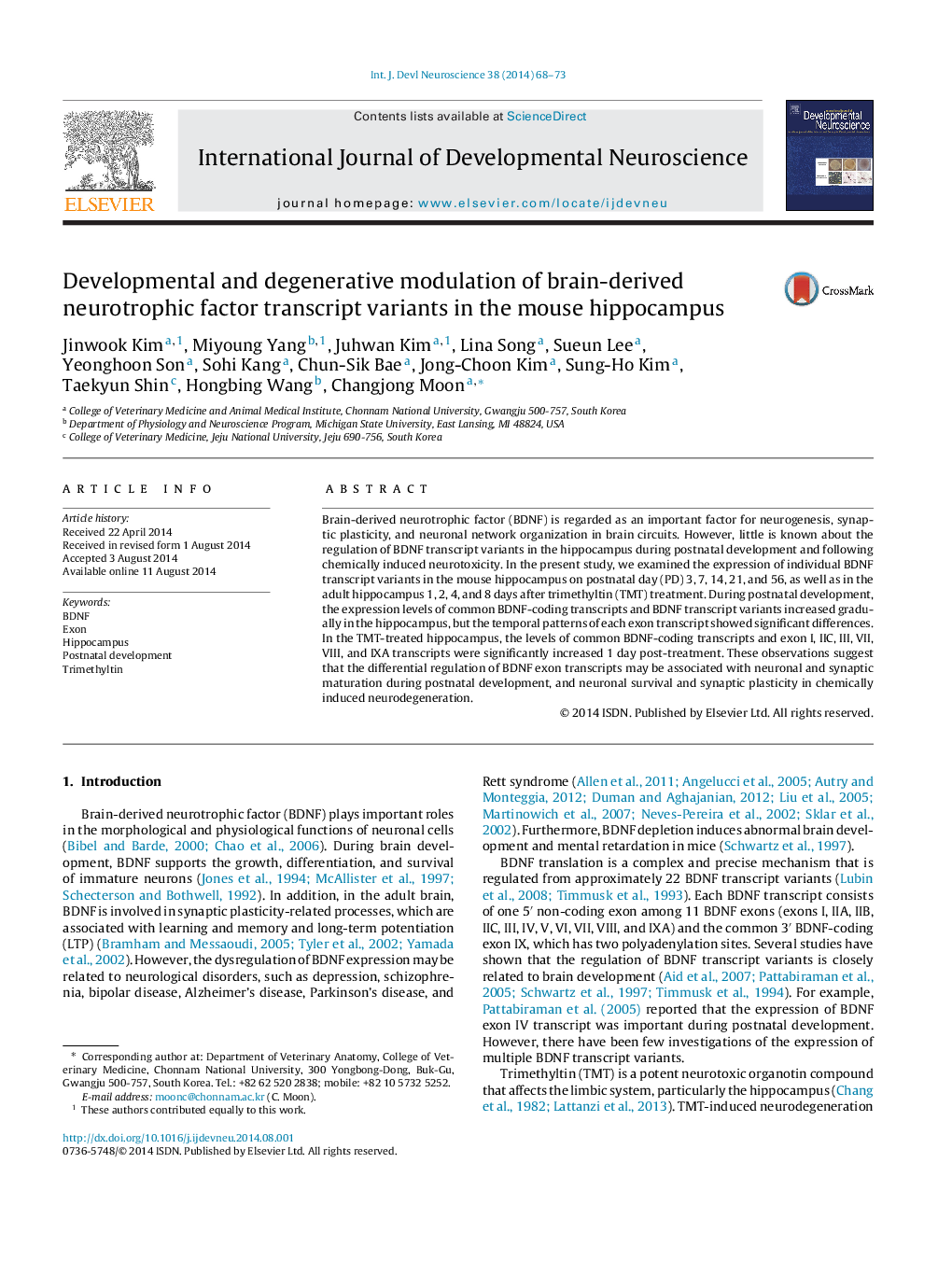| Article ID | Journal | Published Year | Pages | File Type |
|---|---|---|---|---|
| 2785956 | International Journal of Developmental Neuroscience | 2014 | 6 Pages |
•Hippocampal BDNF-encoding mRNA level increased during postnatal development.•BDNF exon transcripts were differentially regulated during hippocampal development.•TMT transiently increased BDNF-encoding mRNA level in the hippocampus.•TMT differentially regulated BDNF transcript variants in the hippocampus.•BDNF exon regulation may be related to neural maturation, plasticity, and survival.
Brain-derived neurotrophic factor (BDNF) is regarded as an important factor for neurogenesis, synaptic plasticity, and neuronal network organization in brain circuits. However, little is known about the regulation of BDNF transcript variants in the hippocampus during postnatal development and following chemically induced neurotoxicity. In the present study, we examined the expression of individual BDNF transcript variants in the mouse hippocampus on postnatal day (PD) 3, 7, 14, 21, and 56, as well as in the adult hippocampus 1, 2, 4, and 8 days after trimethyltin (TMT) treatment. During postnatal development, the expression levels of common BDNF-coding transcripts and BDNF transcript variants increased gradually in the hippocampus, but the temporal patterns of each exon transcript showed significant differences. In the TMT-treated hippocampus, the levels of common BDNF-coding transcripts and exon I, IIC, III, VII, VIII, and IXA transcripts were significantly increased 1 day post-treatment. These observations suggest that the differential regulation of BDNF exon transcripts may be associated with neuronal and synaptic maturation during postnatal development, and neuronal survival and synaptic plasticity in chemically induced neurodegeneration.
